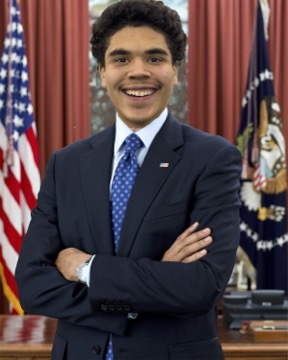Inside The World of Whitewashing
March Issue: Social Justice

https://sociorocketnewsen.files.wordpress.com/2012/05/plastic-surgery-1.jpg
Chinese White Washing
By changing their appearances in order to mimic western characteristics, East Asian people living in China are seemingly denouncing their heritage. This issue correlates with a growing problem in the United States: the focus on the perfect body, and an emphasis on being white, which both normalize and perpetuate unrealistic, yet unquestioned ideals. These superficialities not only have a negative impact on American culture, but have migrated to other cultures as well, including one of the world’s oldest, richest, and most profound civilizations: that of China. This mainstream idea, facilitated by the definitions of beauty, promoted by American media, pressures young individuals in the United States and China alike to conform to a society-constructed idea of beauty. However, there are some individuals who strongly disagree, believing that Western countries do not influence their East Asian counterparts at all, owing the recent changes in cosmetic products, surgeries, and tips to a Chinese person’s own idea of attractiveness.
“Whitewashing” is considered a derogatory phrase used to describe the act of a group of people, especially a minority, assimilating into western society. It does not mean that those who undergo this “process” have to abandon his or her own culture, but rather adopt its North American complement. This term sparks controversy, as there are handfuls of debates regarding where this practice persists, or if this practice even exists at all.
The act of whitewashing is now commonplace in China, especially in the busy cities or within the limits of crowded tourist attractions. East Asian people living in China are driven to institutionalize their looks to resemble the average white American. Xiaohong Xu, Upper School Chinese teacher and native of Shanghai, reveals, “Yeah, that’s true [in regards to the whitewashing of Chinese people]… if there’s a local product made by Chinese people or designers, they need to name the product using an alphabetic name to indicate that there is some foreign, western flavor, in order to have a good sell of their product.” She continues, explaining other instances in which whitewashing happens: “[The Chinese] are afraid of the sunshine, and at the beach they hold their umbrellas… because they want to look white in color… the skin tone, the naming [are all examples of assimilation]… and they will hire a western-looking model, not an authentic-looking Chinese girl… they want a big nose, blonde color hair, and the white skin color of Americans.” This yearning to appear more American and “white” happened to be a recurrent theme, as yet another person, a WFS student who wished to remain anonymous, says, “I had to be careful what makeup I bought there [in China] because almost all of it had a bleach in it to make one’s skin color more white.” This statement highlights the dangerous lengths being taken to achieve a more western look.
In some ways, it seems that those who make the decision to wear a bleach-based bronzer seem to idolize Americans at most, or at least withstand procedures in the hopes of resembling their overseas counterpart. Xu recalls, “Americans receive more welcome… they will be stopped by so many Chinese tourists to take a picture… and they will show off their picture to their friends and say ‘I got a picture with a Westerner!’”
Although whitewashing may appear innocent, it has the ability to cause emotional damage. This distorted view causes Chinese people, as well as Americans, to hold themselves accountable to the unattainable and demanding standards that are controlled and regulated by the media. These culturally normative standards influenced by western culture cause oneself to want to change their appearance and in the process, their identity and heritage. Eleanor Napoli ’16 explains, “People should just be who they are and not have to change just because it is a social norm. They should be confident with themselves and their identity without the media persuading them to be someone different. Listen to the Beatles: ‘let it be.’” Encouraging outlooks such as these deeply contrast with the current prejudicial standards that have the tendency to be emphasized by modern media.
On the other hand, some people disagree with the notion that Chinese people are assimilating into Western culture, but instead believe that these people are supporting their own idea of attractiveness. Student Douglas Nie ’18 says, “It’s not whitewashing. It may be propaganda, but it’s not based on Americans or Europeans.” His view is reinforced by fellow classmate, Jerica Xu ’18, who agrees, “In China the more pale you are the better, but that’s not whitewashing. It’s just making yourself more attractive.”
Whitewashing is often considered a self-deprecating practice that forces East Asian people to assimilate into Western culture. By enforcing oppressive ideals often centered around unattainable beauty standards, the media can wreak havoc and destroy the notion of being unique. Although some disagree about whether or not whitewashing exists, there is no question about the negative effects of the media’s prevalence in both American and Chinese culture.






































